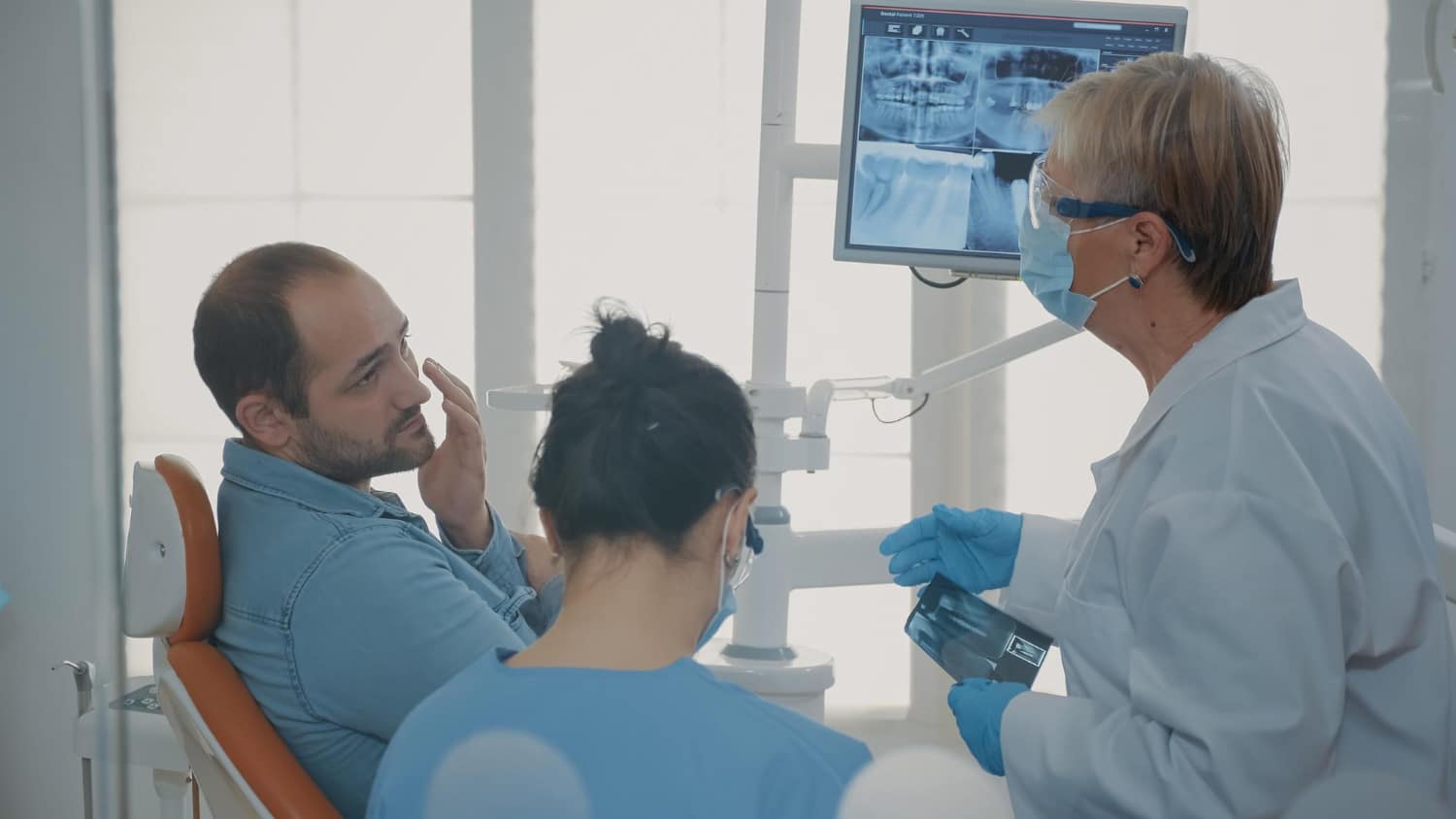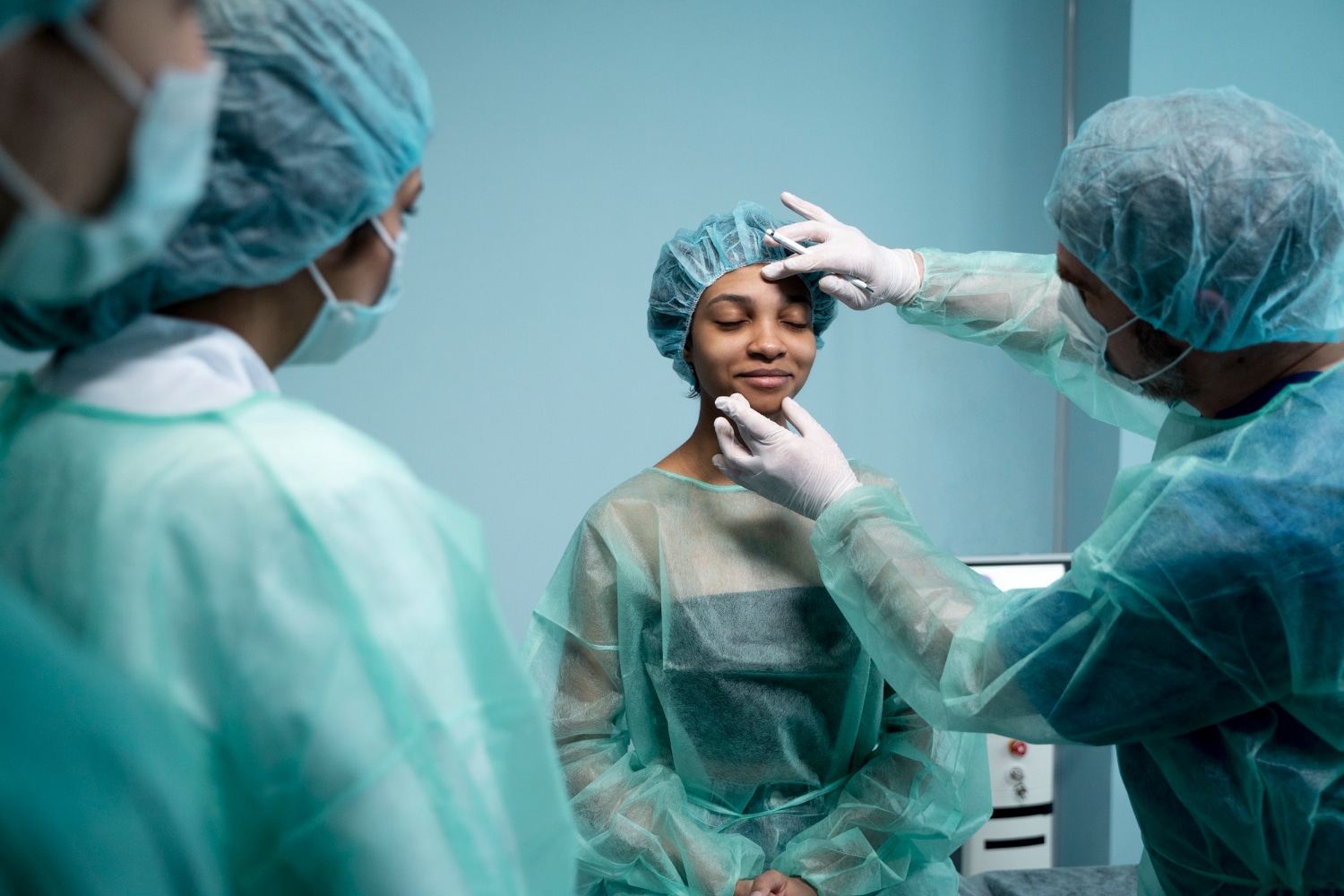Welcome to the fascinating world of oral and maxillofacial surgery (OMS), where complex procedures and cutting-edge techniques converge to transform lives. In this article, we will unveil the mysteries surrounding OMS, shedding light on the specialized field that encompasses the diagnosis, treatment, and management of a wide range of conditions affecting the mouth, jaw, and face.
Oral and maxillofacial surgeons are trained professionals who possess not only dental expertise but also surgical skills, enabling them to tackle diverse issues such as facial trauma, oral cancer, congenital deformities, and complex dental problems. From corrective jaw surgery to dental implants, OMS encompasses a vast array of treatments that restore both function and aesthetics.
Moreover, by incorporating advanced technology and continuously evolving their knowledge, oral and maxillofacial surgeons are at the forefront of innovation in the medical field. They employ techniques like virtual surgical planning, computer-guided surgery, and the use of 3D-printed models to enhance treatment outcomes and improve patient satisfaction.
Join us on this journey as we delve into the realm of OMS, unlocking its secrets and understanding the profound impact it has on people’s lives.
Scope of Oral and Maxillofacial Surgery
Oral and maxillofacial surgery encompasses a broad spectrum of treatments that involve the diagnosis, surgical intervention, and management of conditions related to the mouth, jaws, face, and neck. This specialized field integrates principles of dentistry, medicine, and surgery to address complex issues such as facial trauma, oral pathology, temporomandibular joint disorders, and congenital anomalies. Oral and maxillofacial surgeons undergo extensive training that equips them with the necessary expertise to perform both routine and complex surgical procedures with precision and care.
The scope of OMS extends beyond traditional dental care to include procedures such as orthognathic surgery for correcting jaw misalignments, dental implant placement to restore missing teeth, and reconstructive surgery to repair facial injuries. Additionally, oral and maxillofacial surgeons play a crucial role in the management of oral cancer, cleft lip and palate deformities, and obstructive sleep apnea. By collaborating with multidisciplinary teams, OMS specialists offer comprehensive treatment solutions that address both functional and aesthetic concerns, enhancing patients’ overall well-being.
In recent years, the field of oral and maxillofacial surgery has witnessed significant advancements in technology and surgical techniques, leading to improved treatment outcomes and patient satisfaction. From the integration of virtual surgical planning and computer-guided surgery to the utilization of 3D-printed models for preoperative visualization, OMS specialists leverage cutting-edge innovations to deliver personalized and effective care. By staying at the forefront of medical advancements, oral and maxillofacial surgeons continue to push the boundaries of what is possible in the realm of surgical interventions.
Common Conditions Treated by Oral and Maxillofacial Surgeons
Oral and maxillofacial surgeons are trained to manage a wide array of conditions that affect the oral cavity, jaws, and facial structures. One of the common conditions treated by OMS specialists is impacted wisdom teeth, which can cause pain, infection, and damage to surrounding teeth if left untreated. Oral and maxillofacial surgeons perform wisdom teeth extraction procedures to alleviate discomfort and prevent potential complications.
iofacial anomalies, such as cleft lip and palate, are also within the purview of oral and maxillofacial surgery, with specialists working closely with multidisciplinary teams to provide comprehensive care from infancy through adolescence. By addressing these conditions early on, OMS professionals can improve patients’ quality of life and long-term outcomes through coordinated treatment plans.

Procedures Performed in Oral and Maxillofacial Surgery
The field of oral and maxillofacial surgery encompasses a wide range of procedures, each tailored to address specific conditions and improve patients’ oral health and overall well-being. Surgical tooth extractions are among the most common procedures performed by OMS specialists, often necessary for impacted or decayed teeth that cannot be saved through conventional means.
Dental implant placement is another core aspect of OMS, offering a durable and natural-looking solution for patients missing one or more teeth. By surgically inserting implants into the jawbone and attaching custom-made prosthetic teeth, oral and maxillofacial surgeons can restore both function and aesthetics, enhancing patients’ confidence and quality of life.
Orthognathic surgery, also known as corrective jaw surgery, is a complex procedure that involves repositioning the jaws to correct functional and aesthetic issues such as bite misalignment, facial asymmetry, and breathing difficulties. Through meticulous planning and precise surgical techniques, OMS practitioners can achieve harmonious facial proportions and optimal dental occlusion, improving both form and function for patients.
Benefits of Oral and Maxillofacial Surgery
The field of oral and maxillofacial surgery offers a myriad of benefits for patients seeking to address complex dental and facial conditions. One of the primary advantages of OMS is its ability to provide comprehensive care, integrating surgical expertise with dental knowledge to deliver holistic treatment plans tailored to each individual’s needs.
Furthermore, oral and maxillofacial surgeons are adept at utilizing advanced technology and innovative techniques to enhance treatment outcomes and improve patient satisfaction. From virtual surgical planning and computer-guided surgery to the use of 3D-printed models for preoperative visualization, OMS practitioners leverage cutting-edge tools to optimize surgical precision and efficiency.
Another significant benefit of oral and maxillofacial surgery is its transformative impact on patients’ quality of life. Whether restoring oral function, improving facial aesthetics, or alleviating chronic pain and discomfort, OMS procedures can profoundly enhance individuals’ overall well-being and self-confidence, empowering them to lead healthier, more fulfilling lives.
Recovery and Aftercare in Oral and Maxillofacial Surgery
After undergoing oral and maxillofacial surgery, patients require proper postoperative care to ensure optimal healing and recovery. Depending on the complexity of the procedure, recovery times may vary, with oral and maxillofacial surgeons providing detailed instructions on pain management, wound care, dietary restrictions, and activity limitations.
In the immediate postoperative period, patients may experience swelling, bruising, and discomfort, which can be managed with prescribed medications and cold compresses. It is essential to follow the surgeon’s guidelines for oral hygiene and dietary modifications to promote healing and reduce the risk of complications such as infection or delayed wound healing.
Regular follow-up appointments with the oral and maxillofacial surgeon are crucial during the recovery phase to monitor progress, address any concerns, and ensure the success of the surgical outcome. By adhering to postoperative instructions and attending scheduled check-ups, patients can optimize their recovery process and achieve the best possible results from their OMS procedure.

Oral and Maxillofacial Surgery vs. Other Dental Specialties
While oral and maxillofacial surgery shares some similarities with other dental specialties such as periodontics and prosthodontics, it distinguishes itself through its focus on surgical interventions for complex craniofacial conditions. Unlike general dentists who primarily provide preventive and restorative care, oral and maxillofacial surgeons are uniquely trained to perform a wide range of surgical procedures involving the oral cavity, jaws, and face.
In comparison to orthodontics, which primarily deals with correcting dental misalignments and malocclusions through braces or aligners, oral and maxillofacial surgery addresses more profound structural issues that require surgical correction. From reconstructive jaw surgery to facial trauma repair, OMS encompasses a diverse array of procedures aimed at restoring both function and aesthetics for patients with complex craniofacial conditions.
Moreover, oral and maxillofacial surgeons often collaborate closely with other medical specialties, such as otolaryngology, plastic surgery, and oncology, to provide multidisciplinary care for patients with complex craniofacial issues. This collaborative approach ensures that patients receive comprehensive treatment that addresses the full spectrum of their oral and facial health needs, leading to improved outcomes and enhanced quality of life.
Finding a Qualified Oral and Maxillofacial Surgeon
When seeking a qualified oral and maxillofacial surgeon for your dental or facial needs, it is essential to consider several factors to ensure you receive the highest standard of care. Begin by verifying the surgeon’s credentials, including their board certification in oral and maxillofacial surgery, which demonstrates their expertise and adherence to rigorous professional standards.
Additionally, inquire about the surgeon’s experience and specialization in specific procedures relevant to your condition, as well as their track record of successful outcomes and patient satisfaction. A skilled and experienced oral and maxillofacial surgeon will have a comprehensive understanding of the latest surgical techniques and technologies, enabling them to provide optimal care tailored to your individual needs.
Furthermore, consider the surgeon’s approach to patient care, ensuring they communicate effectively, listen to your concerns, and involve you in the decision-making process regarding your treatment plan. A compassionate and patient-centered approach is essential in creating a positive surgical experience and fostering a trusting relationship between the surgeon and the patient.
Oral and Maxillofacial Surgery Advancements and Innovations
The field of oral and maxillofacial surgery is continually evolving, driven by advancements in technology, surgical techniques, and treatment modalities that enhance patient outcomes and improve surgical precision. Virtual surgical planning is one such innovation that allows oral and maxillofacial surgeons to simulate complex procedures in a virtual environment, enabling them to plan surgeries with unprecedented accuracy and efficiency.
Computer-guided surgery represents another groundbreaking advancement in OMS, providing real-time feedback and navigation during surgical procedures to ensure optimal placement of implants, accurate bone cuts, and precise soft tissue manipulation. By incorporating computer-assisted techniques, oral and maxillofacial surgeons can achieve superior results while minimizing surgical risks and complications.
The use of 3D-printed models for preoperative planning and intraoperative guidance has revolutionized the field of oral and maxillofacial surgery, allowing surgeons to visualize complex anatomical structures and simulate surgical scenarios before entering the operating room. This technology enables greater surgical predictability, improved patient outcomes, and enhanced communication between the surgical team and the patient.

Conclusion
In conclusion, oral and maxillofacial surgery stands at the forefront of innovative surgical care, offering comprehensive solutions for a wide range of dental and facial conditions. Through advanced techniques, interdisciplinary collaboration, and a patient-centered approach, oral and maxillofacial surgeons continue to transform lives and enhance the quality of care for individuals seeking treatment for complex craniofacial issues.
As we’ve journeyed through the world of OMS, we’ve uncovered the intricate procedures, diverse conditions, and transformative benefits that define this specialized field. Whether restoring oral function, addressing facial trauma, or enhancing aesthetics, oral and maxillofacial surgery plays a vital role in improving patients’ overall well-being and quality of life. Embrace the wonders of OMS, where innovation meets compassion, and excellence thrives in the pursuit of optimal surgical care.






